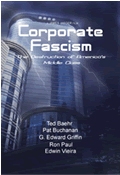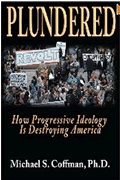THE FEDERALIST PAPERS DISCUSS CONSTITUTION'S CRITICS
By Mary E. Webster
February 22, 2014
NewsWithViews.com
The Federalist Papers often bring up subjects and arguments made in the opinion articles—written during the same period—that we now refer to as The Antifederalist Papers. It is clear that many people had issues with the new Constitution.
Today, TV and internet pundits discuss many of the same Constitutional issues. The Federalist Papers teach that debates over the Constitution will not always be based "on the best interests of our society, unbiased by less noble interests not connected with the public good. Although we may sincerely wish this, it can't be expected."[*]
I find this awareness by the author that Constitutional discussions will contain personal biases strangely reassuring. My ultimate goal is to reverse the unconstitutional growth of the federal government. I have not gotten discouraged from reaching that goal because The Federalist Papers warned me that there would be great opposition: "The Constitution affects many special interests and changes many local institutions. Subjects other than its merits will be discussed. The debate will include passions and prejudices unrelated to discovering the truth and meaning of the Constitution."
"Even opponents of the new Constitution may be motivated by upright intentions. And much of the opposition will spring from blameless, if not valid, motivations. Jealousies and fears will lead arguments astray into honest errors in thinking. A false bias can be created for a variety of good reasons. Wise and good men often argue on both the wrong and right side of society's most important questions. This fact should teach moderation to anyone who thinks they are always in the right in any argument."
As I discuss Constitutional issues with people who worry about the current state of the country, I often discover that their heart is in the right place but some of their arguments are not logical. This is another lesson I learned from Paper #1: "People who support the right side of a question can also have ulterior motives like ambition, avarice, personal animosity, and party opposition." Or they simply don't have all the information they need to make an informed argument.
Why do so many politicians seem especially opposed to following the limits within the Constitution? Power. "Many politicians will oppose the new Constitution. Some politicians are afraid that the Constitution will decrease the power and benefits of their current State offices. Others think that they can have more power if the country is in turmoil or is broken up into several small countries."
In my lifetime, I first noticed a huge political power grab during the debate over Medicare. More recently, we saw the "affordable health care act" become law. As I began studying The Federalist Papers, I was surprised to discover that these types of power grabs were predicted in Paper Number 1: "Dangerous ambition is more often masked by a zeal for the rights of the people than the zeal for a firm and efficient government. History teaches us that most men who have overturned the liberties of republics began their career by proclaiming their devotion to the people. They gain position by arousing people's prejudices and end as tyrants."
|
The Constitution does not give the federal government the power to regulate or sell health insurance. Prior to studying The Federalist Papers, it seemed to me that the federal government was free to pass any law about any subject. I intuitively knew that Medicare was bad law, but I wasn't able to explain why it was unconstitutional. Now, through The Federalist Papers authors' keen insight to human behavior and explanation of an energetic, but very limited, federal government, I not only understand why it is unconstitutional, but why it is a really bad idea.
I love sharing what I've learned in The Federalist Papers. My hope is that more people pick them up and read them. I try to make my explanations clear and concise, however, The Papers usually do a better job.
[*] All quotes are from Paper Number 1, The Federalist Papers: Modern English Edition Two, 2008
© 2014 Mary E. Webster - All Rights Reserved
Mary E Webster, a graduate of St. Paul College and the University of Iowa, started studying The Federalist Papers in 1994. Her books, including a 10th-grade reading level translation of the Papers, The Federalist Papers: Modern English Edition Two, and The U.S. Constitution: Annotated with The Federalist Papers in Modern English make the timeless arguments within the Papers available to everyone. Webster is related to Noah and Daniel Webster and a direct descendent of several signers of the Mayflower Compact.
Website: Mary.Webster.org
Email: marywebster00@gmail.com





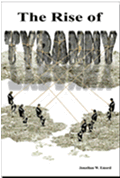

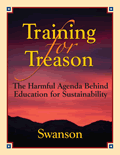

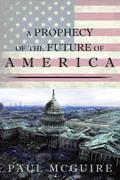



 Share
This Article
Share
This Article

